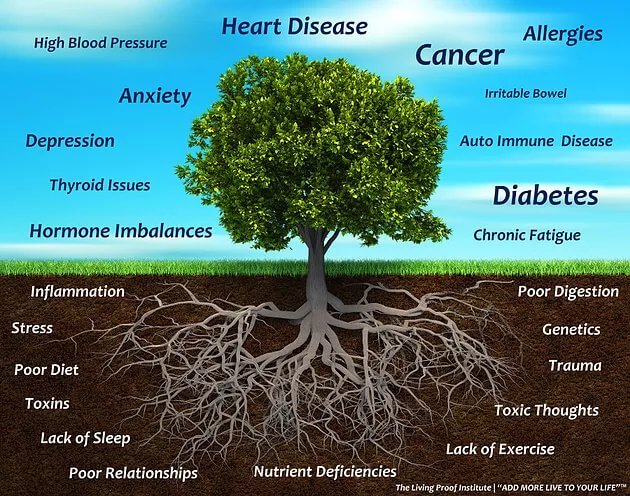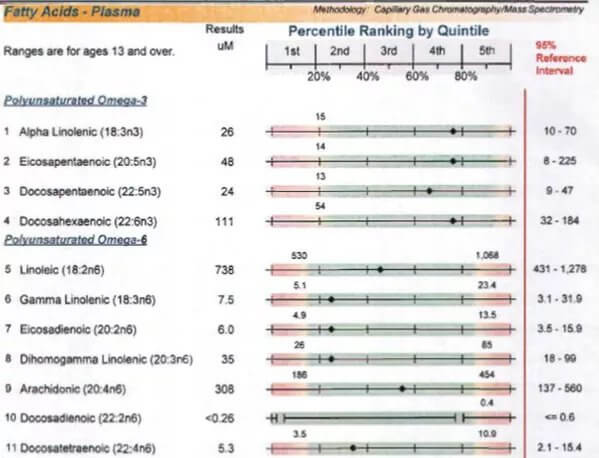Medicine is at a crossroads.
To the left, common sense. We have been distracted by the craziness of the modern world and we have forgotten the most important, yet undeniable fact about how to become and stay healthy – that you are what you eat. Our society and our medical professionals have de-emphasized the importance of the quality of the food that we eat and the impact of nutrition on our health. We ignore the function of our tissues and cells that depend on the vitamins, nutrients, and foundational building blocks that come from our food. The common sense truth that we have forgotten is that food is the most powerful medicine of all.
To the right, technology. The idea that innovation has the ability to make our lives better. The realization that the world is very different than it was 100 years ago and we can use technology to solve some of the problems that we are facing in a complex, industrialized world. Western medicine has utilized technology successfully in many ways, such as dramatic reductions in certain types of cancer through development of screening tests such as pap smear and colonoscopy, reduction of mortality from heart attack due to the invention of percutaneous coronary artery stenting, and advancements in acute trauma care.
Enter Functional Medicine, making it’s own path down the center. The premise of Functional Medicine is that instead of focusing on the question “what is the disease?” the better approach is to answer “why am I having symptoms?” If your doctor diagnoses you with a certain disease, often times if you ask “why do I have this?” he will say, “I don’t know, but take this pill and it will go away.” Western medicine shuts off certain functions of the body in order to combat “disease”. If you have eczema, your doctor will give you a steroid cream which shuts off the local immune system. If you have high cholesterol, your doctor will give you a statin medication which shuts off the liver’s ability to synthesize cholesterol. But Functional Medicine recognizes that there are underlying fundamental imbalances that lead to biochemical imbalances and eventually the symptoms that we associate with disease, and at the very heart of these imbalances the common sense paradigm of nutrition and healthy lifestyle.

But Functional Medicine is more than just saying “eat right, exercise, and de-stress.” Functional Medicine uses the latest in biotechnology to diagnose and treat imbalances. Advanced FM testing involves looking at the nutritional building blocks, using biochemical markers to assess function, and testing hormone and hormone metabolite levels. For example, one of the determinants of chronic inflammation is having healthy omega-3 fatty acids in the diet (such as olive oil and fish), which are anti-inflammatory and minimizing omega-6 fatty acids which are pro-inflammatory. If needed, a Functional Medicine doctor can test these levels, which may contribute to chronic inflammation and symptoms such as high blood pressure, depression, autoimmunity, or a myriad of other problems.

In addition to using technology for diagnosis, Functional Medicine uses advances in biotechnology to provide treatment options, which are commonly referred to as “nutraceuticals”. Unlike pharmaceuticals, which tend to shut off biochemical pathways, nutraceuticals when combined with dietary and lifestyle modification help to restore function to the underlying biochemistry. For example, if someone is having gastrointestinal issues, such as gas, bloating, pain, constipation, or diarrhea, functional medicine testing may reveal that the problem is with digestion. In this case, in order to help with digestion, the patient may benefit from taking a nutraceutical that contains pancreatic enzymes, which are chemicals that are normally made by the human pancreas to help break down food into their smallest components (which is called digestion). Through the use of modern biotechnology, these chemicals are able to be isolated, stabilized, and placed into a convenient pill that the patient takes prior to meals, thereby restoring the body’s digestive function.
Functional Medicine combines the best of both worlds. We can no longer afford to ignore the power of nutrition in health and disease. Doctors who focus only on shutting off biochemical pathways with pharmaceuticals, will be left behind by informed patients who want more. That being said, we cannot ignore the power of biotechnology to improve our lives and our health. In our modern world, living a healthy lifestyle is challenging. We are less connected to nature, have less access to organic/nutrient-rich foods, and are inundated with a higher level of daily toxicity, so achieving health through purely natural means is not always realistic. The future of medicine will be in the realization that we do not need to divide ourselves into “Western medicine” and “natural medicine” camps, Functional Medicine is the new frontier at this crossroad.

